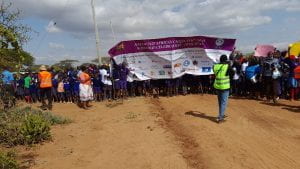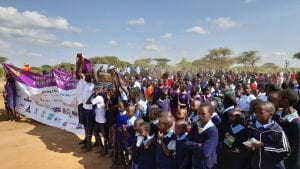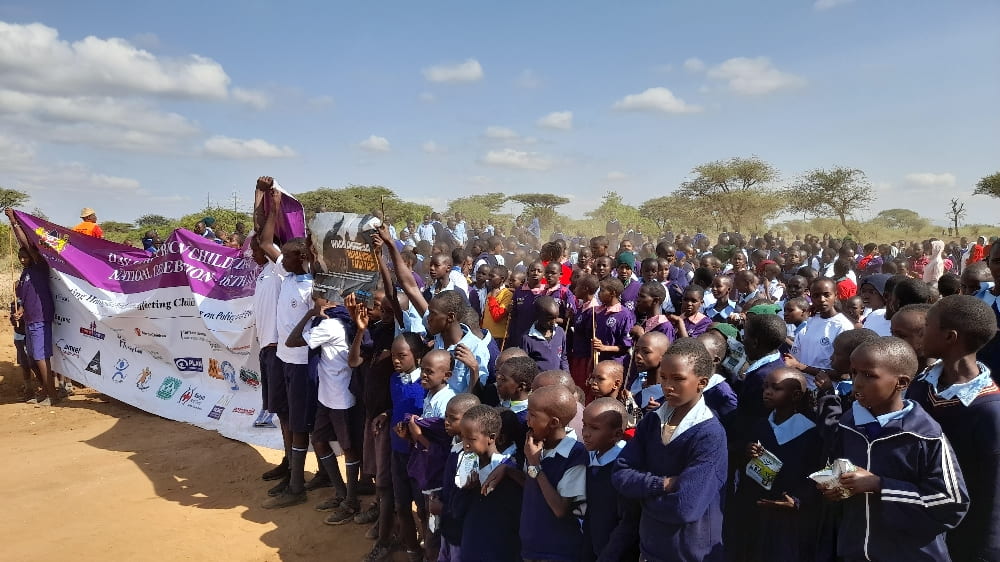by Grace Ndanu

Africa is not just full of wealth, but there is raw talent and resources that are boundless. In my opinion, Africa is by far the wealthiest continent in the world. Besides exotic plants, sandy beaches, fascinating wildlife, the breath-taking landscape, precious stones, and the children, who are the most precious possession. This is where they are supposed to be assisted and directed to build their future. So where do we go wrong? Is it hunger for power? Greed? Corruption? Every one cares for themselves and forgets about children. Parents treat their girls like bread, where they are usually eager waiting until the girl will reach puberty so that they can marry them off, just to be given two blankets, two kg of sugar, and a number of cows. I call that selling and buying of bread.
Children from Soweto, South Africa protested against education injustices, and inequality in the apartheid regime. Instead of being heard, they were massacred back in 1976. Here we are later forty six years later, the African child is still afflicted with education unfairness, inequality, and harmful practices across most of Africa.
As I honored those children massacred in Soweto, I took a glimpse into the life of an African child. I will use the life of the Kenyan children since I was once one. A Kenyan child is playful. He or she is always exited to interact with family and friends, also she plays all made up games that children do. A Kenyan child is smart, and she learns many skills, including farming, animal rearing, and learning two to three languages to communicate effectively with whomever they encounter. This is on top of formal school education. A Kenyan child is strong. Challenges, obstacles, and hardships are an expectation, and she knows she must work hard. If she falls, she must get up because she is like any other child who is in a better country and therefore she must dream because her dreams are just as vibrant as any other child.
Kenyan children continue to suffer the effects of dangerous practices despite the existence of laws and policies that are supposed to protect their rights and well-being. Harmful practices that the Kenyan children go through include female genital mutilation, early marriage, corporal punishment, recruitment in wars, preference of boy child, discrimination of children with disabilities, and infanticide, to mention but a few. Following what the Kenyan child is going through, this year’s theme was “Eliminating Harmful Practices Affecting Children: Progress on policy and practices since 2013.” I believe the theme was calling upon member states of the African Union to adopt stronger measures to protect the children from harmful practices that continue to violate their rights.
The main event was held in Elungata Wuas Primary School, which is in the interior of Kajiado County. Honestly I felt like I was in a different world, starting with the weather. I think it is the hottest, the location was the furthest end of the world. I am pretty sure the Elungata Wuas Primary School pupils spent a week before the ceremony cleaning up, mowing the grass on the compound and scrubbing the walls, as it is part of Kenyan culture to ensure that everything is perfect before the visitors arrive. (My opinion, we overdo.) The day started with very hot weather. The energy of the children was full of excitement as there were pupils from other schools and children homes that were invited. They were dressed up in their uniforms and others provided t-shirts with this year’s theme logo. The event attracted local and international organizations (UNICEF, World Vision, Save the Children, US-AID, Plan International, and Red Cross among others).

The event started with a 1km walk with all of the children shouting,”Haki yetu, haki yetu haki yetu.” Meaning “our right, our right, our right.” They were also singing songs of victory and crying this year’s banner for the International Day of the African Child celebration. The children made a grand entry into the Elungata Wuas Primary school, where three huge tents and chairs were set up for them. There were several speakers lined up for the event in addition to wonderful performances ranging from songs, music, poems, and dances from different schools and children’s homes.
The speeches that were made revolved around early marriage and female genital mutilation. Beside the children being told to work hard and help their communities out of poverty, the parents were also warned about forcing their girls into marriages and circumcision. The parents were told that the children don’t belong to them but to the government, and therefore anyone who will be found going against the law will be taken to court. Girls are not the only ones at risk from dangerous practices because in Kajiado County, boys face the challenge of early work, such as construction, as they are forced to provide for their families and leave school. All the parties involved in child welfare were called to work together to protect children from harm and to ensure their welfare.The Gender officer talked about government’s commitment to ensuring children are protected from all forms of violence, abuse, exploitation, and neglect by putting in place laws and policies that safeguard the rights and welfare of the children.
After the speeches, the ceremony ended with a word of prayer, which was followed by a group photo. The children were released to go and have their lunch. The invited guests and children were allowed to leave at their own pleasure after lunch which made the day a success, and again I was in my longest journey from the furthest end of the world.

